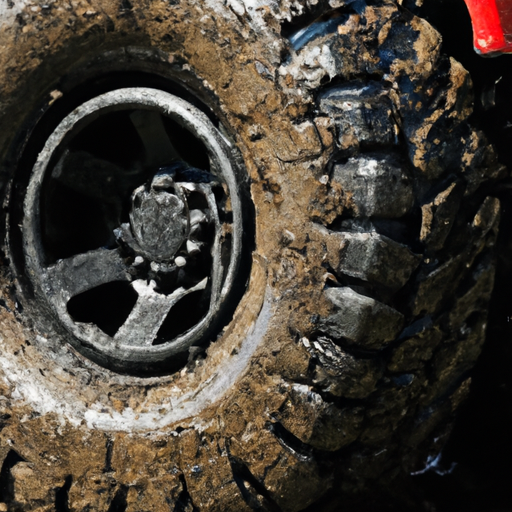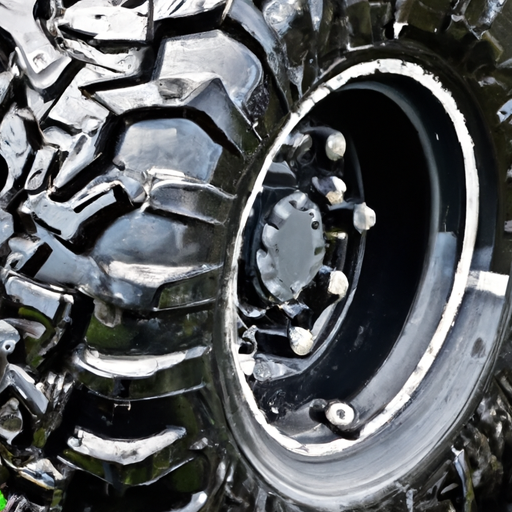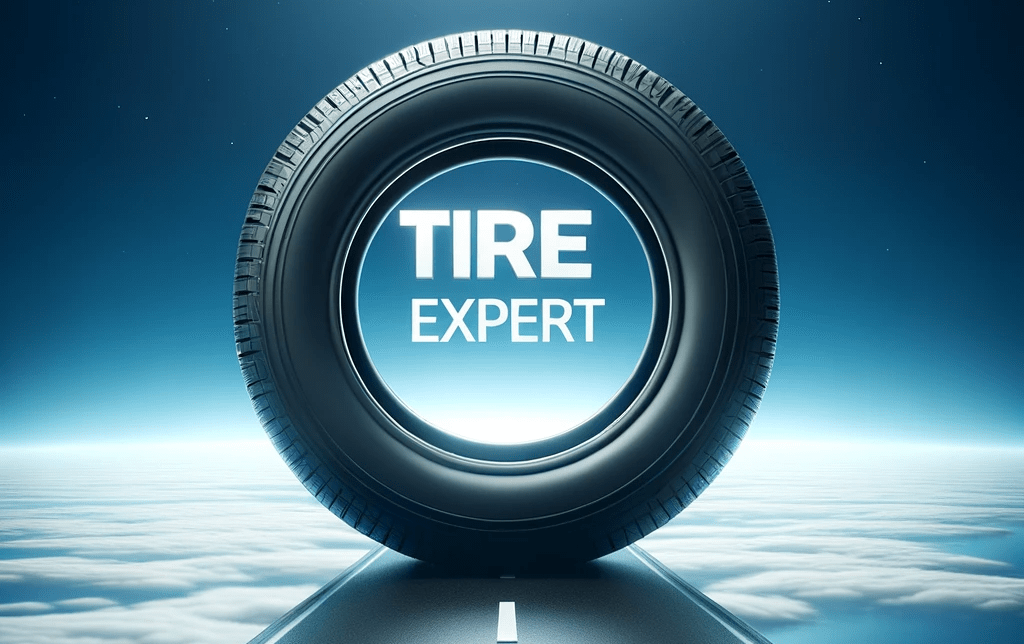Have you ever wondered if there are specific wheel materials that are better suited for off-road driving? Well, you’re in luck! In this article, we will explore different wheel materials and their suitability for off-road adventures. From the durable steel wheels to the lightweight but robust aluminum alloys, we will delve into their unique characteristics and advantages. So, if you’re ready to hit the trails with confidence, keep reading to discover the perfect wheel material for your next off-road escapade.

Benefits of Using Specialized Wheel Materials for Off-road Driving
Off-road driving can be an exhilarating and adventurous experience, but it also puts your vehicle through demanding conditions. To ensure optimal performance and safety, it is essential to equip your vehicle with the right wheel materials. Specialized wheel materials specifically designed for off-road driving offer several benefits that can enhance your overall driving experience.
Improved Traction and Grip
One of the primary advantages of using specialized wheel materials for off-road driving is improved traction and grip. When you venture off-road, you encounter various terrains such as mud, sand, rocks, and steep inclines, which can be challenging to navigate. Wheels made from materials like alloy, cast iron, or forged aluminum provide better traction and grip, increasing your vehicle’s ability to maintain control and maneuver through difficult terrains effectively. This improved traction is crucial for ensuring your safety and preventing accidents while exploring the great outdoors.
Enhanced Durability
Off-road driving can be tough on your vehicle, especially the wheels. The constant exposure to rough and uneven surfaces, rocks, and other obstacles can take a toll on standard wheels. However, specialized wheel materials are designed to withstand these demanding conditions. Steel wheels, for example, are known for their exceptional durability and can withstand heavy impacts without bending or cracking. Alloy wheels are also renowned for their durability and resistance to damage caused by external factors. By opting for specialized wheel materials, you can rest assured that your wheels will withstand the rigors of off-road driving, providing long-lasting performance and reliability.
Resistance to Corrosion and Rust
Exposure to mud, water, and other natural elements while off-roading can lead to rust and corrosion, which can significantly affect the lifespan and performance of your wheels. Specialized wheel materials like forged aluminum or alloy are known for their resistance to corrosion and rust. These materials are treated and coated to protect against the harsh effects of moisture, ensuring that your wheels stay in optimal condition even after prolonged exposure to outdoor elements. By choosing wheel materials that offer resistance to corrosion and rust, you can extend the lifespan of your wheels and maintain their aesthetic appeal.
Reduced Weight for Increased Performance
Another key benefit of using specialized wheel materials for off-road driving is the reduced weight they offer. Wheels made from materials like forged aluminum or carbon fiber are significantly lighter compared to traditional steel wheels. This reduction in weight can have a positive impact on your vehicle’s performance. Lighter wheels contribute to improved overall vehicle performance, including acceleration, braking, and handling. The reduced weight also helps minimize strain on your vehicle’s suspension system, allowing for smoother off-road rides. Additionally, lighter wheels can enhance fuel efficiency, saving you money in the long run.
Common Off-road Wheel Materials
When it comes to off-road driving, not all wheel materials are created equal. Different wheel materials offer unique characteristics and performance, which can greatly affect your off-road experience. Here are some common wheel materials used in off-road driving:
Steel Wheels
Overview of Steel Wheels
Steel wheels have long been a popular choice for off-road driving due to their affordability and durability. They are typically made from a combination of iron and carbon, which provides them with exceptional strength and reliability.
Strengths of Steel Wheels
One of the primary strengths of steel wheels is their ability to withstand heavy impacts without bending or cracking. They are exceptionally durable and can handle the demanding conditions often encountered while off-roading. Steel wheels are also less prone to damage from rocks or other obstacles on the trail, making them a reliable choice for rugged terrains.
Drawbacks of Steel Wheels
Despite their durability, steel wheels have some drawbacks that should be considered. They are typically heavier compared to other wheel materials, which can negatively impact vehicle performance, especially in terms of acceleration and fuel efficiency. Additionally, steel wheels are susceptible to corrosion and rust, especially if not properly maintained. Regular cleaning and protective coatings are necessary to prevent rust from compromising their structural integrity.
Suitability for Off-road Driving
Steel wheels are a suitable choice for off-road driving, particularly for those on a budget or in need of rugged wheels capable of withstanding harsh environments. Their durability and affordability make them a popular choice among off-road enthusiasts.
Alloy Wheels
Overview of Alloy Wheels
Alloy wheels are made from a combination of lightweight metals, primarily aluminum or magnesium, mixed with other elements to create a highly durable and corrosion-resistant material. They are known for their versatility, wide range of design options, and superior performance.
Strengths of Alloy Wheels
One of the significant strengths of alloy wheels is their lightweight construction. The reduced weight contributes to improved overall vehicle performance, including better acceleration, handling, and fuel efficiency. Additionally, alloy wheels offer excellent heat conduction, dissipating heat more efficiently during intense off-road driving, reducing the risk of overheating.
Drawbacks of Alloy Wheels
While alloy wheels offer numerous benefits, they also have a few drawbacks. Their lightweight construction can make them more vulnerable to damage from impacts or rough terrains, particularly when compared to steel or cast iron wheels. Alloy wheels are also generally more expensive compared to steel wheels, which may deter some buyers.
Suitability for Off-road Driving
Alloy wheels are highly suitable for off-road driving, particularly in situations where weight reduction and performance improvement are desired. Their lightweight construction, durability, and resistance to corrosion make them an excellent choice for adventurous off-roaders looking for enhanced performance without sacrificing aesthetics.
Cast Iron Wheels
Overview of Cast Iron Wheels
Cast iron wheels are known for their exceptional strength and durability. They are made from iron alloyed with small amounts of carbon and other elements, which gives them their distinctive properties.
Strengths of Cast Iron Wheels
One of the main strengths of cast iron wheels is their exceptional impact resistance. They can handle heavy impacts without showing signs of damage, making them ideal for off-road driving on rugged terrains. Cast iron wheels also provide excellent load-bearing capabilities, making them suitable for heavier vehicles or those carrying heavy equipment.
Drawbacks of Cast Iron Wheels
Despite their numerous strengths, cast iron wheels also have some drawbacks. One significant drawback is their weight. Cast iron wheels are considerably heavier compared to other wheel materials, which can negatively affect vehicle performance.
Suitability for Off-road Driving
Cast iron wheels are well-suited for off-road driving scenarios that require maximum strength and durability. They are often preferred for heavy-duty off-road vehicles or those venturing into extremely rugged terrains. However, the added weight and reduced performance make them a less popular choice for off-roaders looking for a balance between strength and performance.
Forged Aluminum Wheels
Overview of Forged Aluminum Wheels
Forged aluminum wheels are crafted through a manufacturing process that involves shaping and forming aluminum under high pressure and heat. This process results in a wheel that is not only lightweight but also exceptionally strong.
Strengths of Forged Aluminum Wheels
One of the main strengths of forged aluminum wheels is their combination of lightness and strength. The forging process creates a wheel with improved structural integrity, allowing it to withstand heavy impacts without compromising performance. Forged aluminum wheels also offer excellent heat conduction, which helps dissipate heat more efficiently during intense off-road driving.
Drawbacks of Forged Aluminum Wheels
While forged aluminum wheels offer superior strength and lightness, they come with a higher price tag compared to other wheel materials. This additional cost may be a drawback for some off-road enthusiasts on a budget.
Suitability for Off-road Driving
Forged aluminum wheels are a popular choice for off-road driving, particularly for those seeking a balance between performance and strength. Their lightweight construction, coupled with exceptional durability, makes them ideal for adventurous off-roaders who want to improve both their vehicle’s performance and overall driving experience.
Carbon Fiber Wheels
Overview of Carbon Fiber Wheels
Carbon fiber wheels are a relatively new addition to the off-road driving scene. Made from layers of woven carbon fibers bonded with resin, these wheels offer outstanding strength-to-weight ratio and advanced performance.
Strengths of Carbon Fiber Wheels
Carbon fiber wheels are renowned for their exceptional strength and lightness. They offer unparalleled weight reduction without compromising structural integrity. This reduction in weight contributes to improved acceleration, handling, and fuel efficiency. Carbon fiber wheels also provide excellent heat dissipation, making them highly suitable for intense off-road driving.
Drawbacks of Carbon Fiber Wheels
The main drawback of carbon fiber wheels is their high cost. They are considerably more expensive compared to other wheel materials, making them less accessible for budget-conscious off-road enthusiasts. Additionally, although carbon fiber wheels are highly resistant to impact damage, they can crack under extreme forces, requiring careful handling and regular inspection.
Suitability for Off-road Driving
Carbon fiber wheels are a top choice for off-road driving, particularly for those seeking the ultimate in performance and aesthetics. Their lightweight construction, combined with exceptional strength, makes them an ideal choice for off-road enthusiasts looking to enhance their vehicle’s performance and stand out from the crowd.

Factors to Consider When Choosing Wheel Materials for Off-road Driving
Choosing the right wheel material for off-road driving requires careful consideration of various factors that can greatly impact your driving experience. Here are some essential factors to keep in mind:
Terrain and Conditions
The type of terrain and conditions you regularly encounter while off-roading plays a vital role in determining the most suitable wheel material. If you frequently navigate through rocky terrains or encounter heavy impacts, steel or cast iron wheels may be more suitable due to their exceptional strength and impact resistance. On the other hand, if you primarily drive on sand or soft soil, alloy or forged aluminum wheels may offer better traction and performance.
Weight and Performance
The weight of your wheels can significantly affect your vehicle’s overall performance. Lighter wheel materials, such as alloy, forged aluminum, or carbon fiber, contribute to improved acceleration, handling, and fuel efficiency. However, it’s important to strike a balance between weight reduction and strength to ensure your wheels can withstand the demands of off-road driving.
Cost and Budget
The cost of wheel materials varies significantly, ranging from more affordable options like steel or alloy to higher-end choices like forged aluminum or carbon fiber. Consider your budget and the level of performance you desire before making a decision. Keep in mind that while some materials may have a higher upfront cost, they can provide long-term value through improved performance, durability, and resistance to corrosion.
Personal Preferences
Ultimately, your personal preferences and priorities should guide your choice of wheel materials. Consider factors such as aesthetics, desired level of performance, and the overall driving experience you wish to achieve. Consulting with fellow off-road enthusiasts or professionals can provide valuable insights and help you make an informed decision based on your unique needs.

Maintenance and Care for Off-road Wheels
To ensure your specialized off-road wheels continue to perform optimally and last longer, proper maintenance and care are essential. Here are some maintenance tips you should follow:
Regular Cleaning and Inspection
Regularly cleaning your off-road wheels is crucial to remove dirt, mud, and other debris that can accumulate during off-roading. Use a mild detergent and a soft brush to clean the wheels gently. After cleaning, thoroughly rinse to remove any residue. Additionally, inspect your wheels regularly for signs of damage, such as cracks or bends, and address any issues promptly to avoid further damage or compromised performance.
Tire Pressure Monitoring
Maintaining the correct tire pressure is essential for optimal performance and safety. Off-road driving can cause changes in tire pressure due to variations in terrain and temperature. Invest in a tire pressure monitoring system to ensure your tires are inflated to the recommended levels. Regularly check and adjust tire pressure before each off-road trip to reduce the risk of punctures, improve traction, and extend tire lifespan.
Avoiding Harsh Chemicals and Abrasives
When cleaning your off-road wheels, avoid using harsh chemicals or abrasives that can damage the wheel finish or protective coatings. Stick to mild cleaning agents specifically designed for use on wheels, and use soft brushes or cloths to prevent scratching or dulling the wheel surface. Applying a protective wax or sealant can help maintain the wheel’s shine and protect against damage caused by UV rays or harsh environmental elements.
Proper Storage
Properly storing your off-road wheels when not in use is crucial to maintain their condition and prevent damage. If storing for an extended period, ensure the wheels are clean and dry to prevent corrosion. Consider storing them in a cool and dry environment, away from direct sunlight, chemicals, or potential hazards that could cause damage. If stacking the wheels, use appropriate spacers or protective covers to prevent scratches or other potential damages.

Conclusion
Off-road driving provides a thrilling adventure into the great outdoors. To optimize your off-road experience and ensure your vehicle is capable of handling the rugged terrains, it is important to choose specialized wheel materials. Each wheel material discussed in this article offers unique characteristics and benefits for off-road driving, ranging from improved traction and grip to enhanced durability and resistance to corrosion. By considering factors such as terrain, weight, cost, and personal preferences, you can make an informed decision and select the most suitable wheel material for your off-road adventures. Remember to prioritize proper maintenance and care to prolong the lifespan and performance of your off-road wheels, allowing you to enjoy countless memorable off-road journeys.


